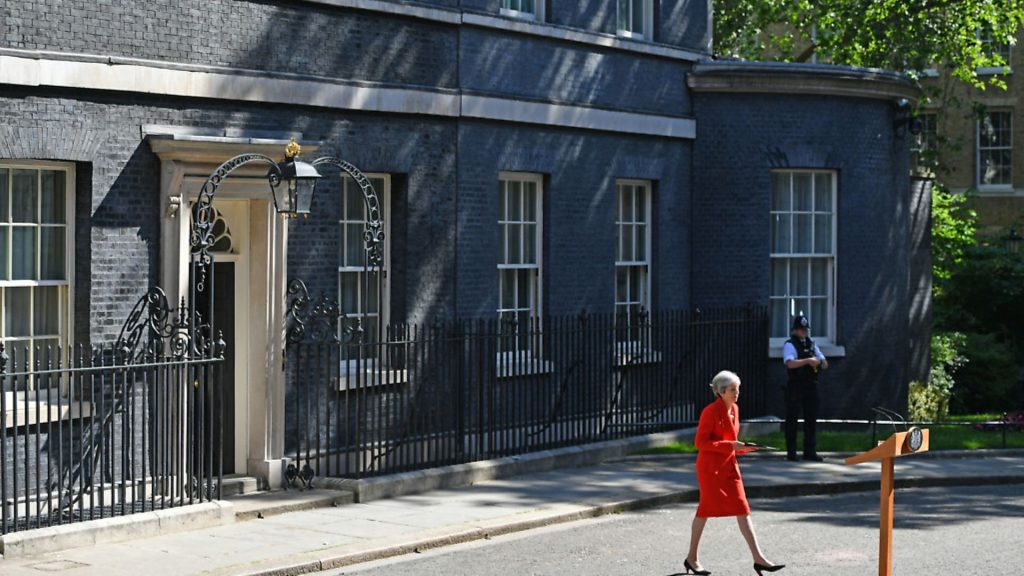
Theresa May has announced that she will end her premiership within days, after intense pressure from MPs and ministers.

The prime minister made the announcement outside 10 Downing Street after meeting with the chair of the 1922 committee of backbenchers, Sir Graham Brady.
She will stand down on Friday, June 7, down after failing to get her Brexit Withdrawal Agreement through the House of Commons.
“I have done everything I can to convince MPs to back that deal,” she said.
“Sadly I have not been able to do so. I tried three times.
“[…] But it is now clear to me that it is in the best interest of the country for a new prime minister to lead that effort.”
She outlined what she believes to be the key achievements of her premiership, and almost broke down in tears at the end of her speech saying it had been her life’s honour to serve “the country that I love”.
International trade minister Liam Fox said in a tweet: “Theresa May has acted with dignity and honour in pursuit of what she believes to be in the national interest, the hallmark of her time in public life.”
The Prime Minister’s support has been at historic lows, with the latest high-profile resignation from speaker of the house Andrea Leadsom, who said in a letter to Theresa May on Thursday: “I no longer believe that our approach will deliver on the referendum result.”
Helen Grant, the Conservative vice chair for communities, subsequently resigned from the position in order to “actively and openly” support one of the new leadership candidates, she said on Twitter.
“This really is the troops leading the battlefield now,” said Sky’s political correspondent Beth Rigby before May’s speech.
May added that a Conservative leadership contest will follow the week after her departure.
Numerous contenders have been – subtly or otherwise – making their overtures to the party in recent weeks, including Matt Hancock, Esther McVey, Sajid Javid, Boris Johnson, Amber Rudd, Rory Stewart, Andrea Leadsom, Jeremy Hunt, and Liz Truss.
The announcement comes after the closing of the polls for the EU elections, in which the Conservatives are widely expected to be trounced by the Brexit Party.
Former chancellor Ken Clarke suggested the majority of Tory MPs did not support their own party.
He told BBC Radio 4’s Today programme: “I suspect the majority of Conservative MPs did not vote Conservative yesterday.”
Warning: Illegal string offset 'link_id' in /mnt/storage/stage/www/wp-includes/bookmark.php on line 357
Notice: Trying to get property 'link_id' of non-object in /mnt/storage/stage/www/wp-includes/bookmark.php on line 37






